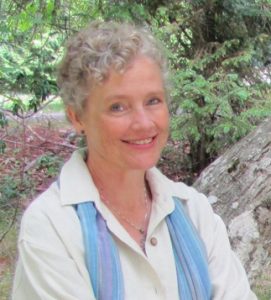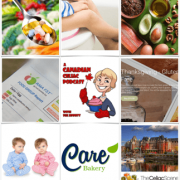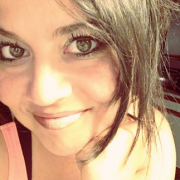Celiac Counsellor Sherry Scheideman Speaks About Self-Care
Having celiac disease puts us under extra strain as we deal with severe dietary restrictions and the physical, emotional, and social challenges that go along with that. That’s why it’s essential that we celiacs take self-care seriously.

Sherry Scheideman, Celiac, M.A., Registered Clinical Counsellor
- Celiac Counsellor’s Corner* is a place where Sherry Scheideman, M.A., Registered Clinical Counsellor, responds to your questions about the emotional and social issues that celiacs face. Diagnosed with celiac disease herself in 2001 in Victoria, BC, Sherry draws upon personal experiences and a Master’s Degree in Counseling to support you in transcending this ‘life transition’ and turning it into an opportunity to live your best life – ever.
******
If we don’t nurture ourselves as we deal with all this, we can burn out, get anxious / depressed / run down, or find ourselves unable to be the loving people we want to be. Practicing self-care isn’t selfish. It’s essential.
 In the spirit of self-care, I went to Salt Spring Island and attended a Mindful Self-Compassion course with gifted trainer Marcia Burton. I’d like to share a Mindful Self-Compassion technique I learned there for dealing with challenging emotions. We can use this technique to help us deal with celiac disease.
In the spirit of self-care, I went to Salt Spring Island and attended a Mindful Self-Compassion course with gifted trainer Marcia Burton. I’d like to share a Mindful Self-Compassion technique I learned there for dealing with challenging emotions. We can use this technique to help us deal with celiac disease.
Imagine you’re at the office, and everyone is gorging on doughnuts. It’s so upsetting! Or, imagine your heart is breaking and your frustration level is rising as you search for a safe summer camp for your celiac child. Try the following Mindful Self-Compassion exercise:
1) Label Your Emotions
- you might notice anger, sadness, grief, longing, etc.
- identify which emotion is strongest
- say to yourself, very kindly, “That’s grief,” or “That’s anger.”
2) Notice the Emotion in Your Body
- scan your body to find where you feel that strong emotion most. Maybe it’s an ache in your throat, a throb in your chest, a tightness in your neck, or a burning in your stomach.
- lean toward that spot in your mind, like you would lean toward a hurting child, friend, or pet.
3) Soften, Soothe, Allow
- pay kind attention to the ache or tight spot or whatever it is. Soften it. Just hold that spot in a tender way in your attention so it can relax and soften.
- soothe yourself as you face your Tim Bit Torment or your Summer Camp Heartache. Place your warm hand gently on the spot where you feel the strong emotion, and very kindly say to yourself, “This is really hard for me.” Soothe yourself like you’d soothe a friend, a child, or a pet.
- allow the strong emotion to be there. Allow yourself to be as you are.
- Soften. Soothe. Allow.
This is a self-care practice that you can use when the going gets tough. You can do it right then and there, but if you are too wrapped up in your suffering at the time, you can do it later, by remembering how you felt and going through the three steps. It’s very healing.
Scientific research on Mindful Self-Compassion shows that it actually affects the body chemistry to reduce negative conditions such as anxiety and depression, and increase positive states such as satisfaction and happiness. We as celiacs could really benefit from that, and Mindful Self-Compassion gives us a way to do it.
There are free recordings online to help guide you through many soothing exercises that you can use to help you deal with the challenges of celiac disease. Check out the websites of my trainer, Marcia Burton, and of the Mindfulness Self-Compassion founders, psychologists Chris Germer and Kirsten Neff, at the links below:
- https://mindfulselfdiscovery.com/guided-meditation-recordings/guided-meditations/
- https://chrisgermer.com/meditations/
- http://self-compassion.org/category/exercises/#guided-meditations
Living with celiac disease is not easy. May you be kind to yourself as you do it. Mindful Self-Compassion can show you how.
Sherry
- Contact Sherry
- View previous Celiac Counsellor Corners enter ‘Sherry‘ into the search field at the top right of this page

“Life happens! Why not love it?”
“Being diagnosed with celiac disease and going gluten-free has challenged me to develop inner resources that I never knew I had, and I’m grateful for that. As a counsellor, I love to help other celiacs find their own gifts within the challenges of the disease, and to facilitate healing. Why not let your celiac disease motivate you to be your best self?”
- About Sherry Scheideman
- What happens in a session?
- Not in Victoria? No Problem. Sherry does Skype
- Be inspired – Sherry’s Blog
- Sherry Scheideman on Facebook
- Contact Sherry
-
- *Information and perspectives provided in Celiac Counsellor’s Corner are intended to provide general information, without independent verification on the part of The Celiac Scene for the accuracy of the information provided to it. The information is specifically not intended to be a substitute for medical diagnosis or treatment by your physician or other health care professional. You should always consult your own physician or other health care professionals about any medical questions, diagnosis, or treatment, especially before trying any diet. The Celiac Counsellor’s Corner does not accept any liability for any injury, loss or damage incurred by use of or reliance on any content contained herein.













